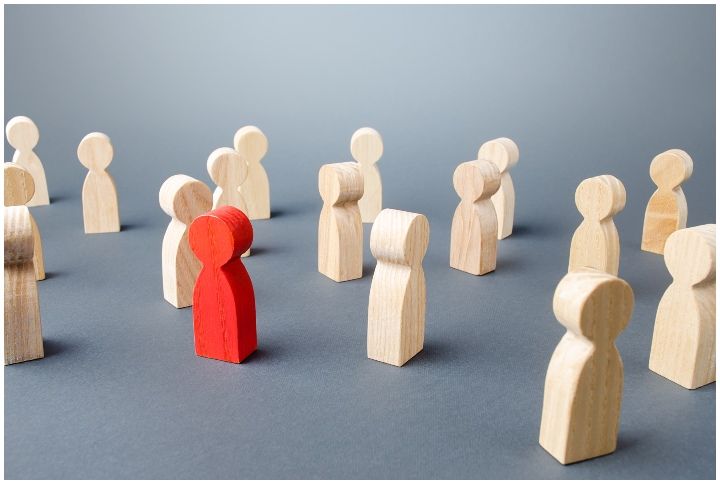Communication can shed light on who we truly are as people. How do you ask? Let’s examine an example together. You’re having a conversation with an acquaintance about a hobby you are passionate about. Let’s name your friend Jane, Jane proceeds to tell you about all the harmful facts about having this hobby. Obviously, you feel angry because you truly enjoy this and you may or may not have been aware of what Jane tells you. Maybe you knew and didn’t care, now what this conversation does, is it shed light on the fact that you knew and didn’t care. Somewhere you feel judged and are triggered by their opposite reaction to something you love.
You might respond defensively and fight and argue about why you continue to pursue this hobby. Not taking into account that you might have something to learn from Jane about this hobby. In other words, if you pay attention to your thoughts and triggers, it will help you get a better understanding of yourself. In the above, example you clearly responded with rage and tried to defend your actions. So how do you then communicate without using your defences? Here’s what communication without defence looks like:
1) Identify your defensive triggers during communication.
I am feeling_____
It is so important to identify our feelings and emotions. By that I mean does it make you angry, irritable or enraged. Once you recognise your response then you learn to effectively control how you react.
What do I feel in my body?
Is this making your heart race, do you have sweaty palms and a light head, are you trying to come up with a retaliation.

2) Buy yourself some time.
Take deep breaths.
Breathing will allow you to slow your heartbeat and collate your thoughts.
Count numbers backwards.
This forces you to wait before you react, frankly, you can couple the deep breaths and the outing together.
Listen while the other person talks.
Don’t just listen to respond, listen to understand and process their ideas on the subject, interject with important questions to help you understand their thought process better but don’t interrupt to speak your peace of mind.
Process, pause and then reply.
Once they are done speaking, you may step away to get a glass of water or visit the washroom. You could also run your wrists under cold water which will calm you down and steady your nerves. Once you return, you will be better equipped to reply in a polite manner without the anxiety of a reactive response.

3) Stop retaliating during your communication.
Allow yourself to approach the conversation objectively.
Don’t think of yourself as you, approach it like you are someone else this way allows you to put your feet in someone else’s shoes and grow your horizons. Distance yourself from the assumption that the other person’s views are wrong. Even if you are absolutely sure they are incorrect, there is always a way to express yourself without rudely dismissing another perspective.
Don’t take it personally.
Their opinion isn’t about you, it comes from their shared experiences in life and the thoughts they formed around it when experiencing it. So don’t take it personally and react like you are being attacked.
Try to understand their perspective.
Once you accomplish all of the above, you will have freed up mind space to understand why they believe what they are saying. You might even learn something new from the experience.

4) How to take criticism.
View criticism as a sign of the other person’s belief in your ability.
Sometimes people expect more from us than we are willing to invest. If they criticise you, it is easier to approach it as the expectations they have of you.
Look for how you can benefit from the feedback.
Maybe you are destined for bigger better things and if people don’t push you then you may never walk the path that might bring out the best in you. It is simply a point to consider in the midst of conversation. However, please process and if you disagree then you are under no obligation to work on it. Always look for how you can benefit from any subject matter.
Be secure with who you are.
Ultimately, you shouldn’t have to worry about the opinions others might have of you. It is important to stand your ground internally and not waver when people come at you with feedback. You shouldn’t feel the need to seek out validation from anyone else but yourself.
If you disagree, thank them for their opinion and walk away.
If you don’t like what you hear or don’t find it constructive, just walk away. Some people relish the idea of trying to tear you down. There is no need to tangle your energies with something you know you already don’t agree with on a cellular level.

Criticism is connected to communication because the minute someone suggests an idea that goes against our own we view is as a form of criticism. We take it personally and believe that they are somehow being critical of how we view the world. This polarising way can hamper your own growth and sour many equations with people over time.
In the end:
I just want to add, that all of us are defensive. Some of us put a lot of thought into how we want to appear to the world and when we find cracks in those facades; we tend to lash out. While it’s ok to feel many emotions, it’s not the nicest to just lash out at people for having an opinion that might be different to yours. This might be a skill to closely examine as it will only get better with time
What are some tools you use as part of your communication skills? Share it with us in the comments below!
Join Girl Tribe by MissMalini on Facebook and Instagram to be a part of more fun conversations!

